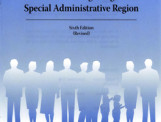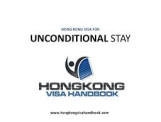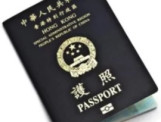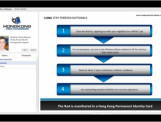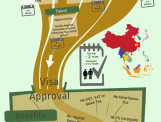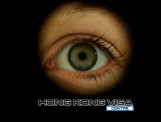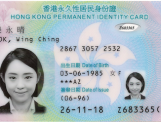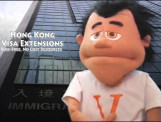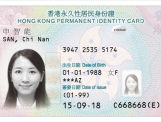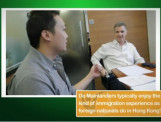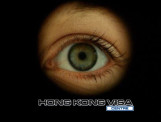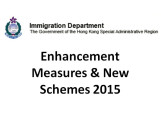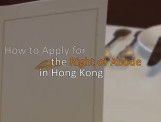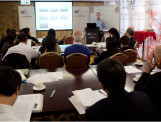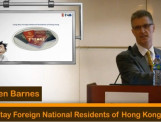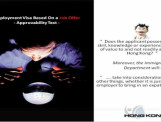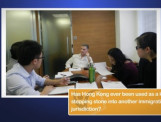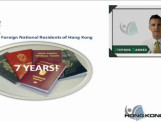
If I Have Spent Less Than 180 Days In Hong Kong During The Last Three Years Will It Affect My Application For The Right of Abode?
Posted by The Visa Geeza / in Long Stay & PR, Your Question Answered / No responses
Less Than 180 Days in Hong Kong During the Last Three Years – Impact On PR Eligibility
What happens if you work for a Hong Kong company but are stationed the majority of your time outside of Hong Kong?

Less than 180 days in Hong Kong during the last three years – impact on PR eligibility?
The answer may be somewhat different from what might you expect, especially given the challenges Covid19 had on folks’ ability to spend time in Hong Kong under their residence visas.
QUESTION
I studied in Hong Kong for 4 years, and when I graduated, I got an offer from a Hong Kong company.
However, my assignment is in mainland China.
For the remaining 3 years, I stayed in mainland China most of time (which means my stay in Hong Kong is less than 180 days in the remaining 3 years).
Will it affect my application for Hong Kong PR?
Thanks for your help in advance!
ANSWER
Learn about the requirements for securing the right of abode in Hong Kong and the significance of spending less than 180 days in Hong Kong during the last three years. Understand the implications of maintaining a normal life and residency in Hong Kong to make a successful claim.
Introduction
Securing the right of abode in Hong Kong is a crucial step for anyone looking to establish long-term residency and enjoy the benefits that come with it. However, certain requirements need to be met, including a continuous ordinary residency of at least seven years.
Additionally, it is essential to understand the significance of spending less than 180 days in Hong Kong during the last three years, as this plays a vital role in proving your eligibility for the rights of abode.
Requirements for Securing the Right of Abode
To be eligible for the rights of abode in Hong Kong, one must have been continuously and ordinarily resident in Hong Kong for a period of not less than seven years.
This means that any absences from Hong Kong during this time must have been temporary. The immigration department evaluates the temporary nature of your absences based on the evidence of what you left behind in Hong Kong each time you travel abroad.
Being Settled in Hong Kong
Let’s analyze the presented facts.
You initially came to Hong Kong on a student visa and spent three or four years as a student before transitioning to employment with a Hong Kong employer.
Shortly after, you relocated to China for work, spending most of your time there.
However, there have been exceptions, with possibly 180 days spent in Hong Kong within the last three years.
When applying for the right of abode, it is crucial to demonstrate to the immigration department that you are clearly settled in Hong Kong.
Meeting the Approvability Test for Right of Abode
The immigration department looks for clear evidence of back-to-back residence visas to satisfy the approvability test for the rights of abode.
It can be assumed that after your student visa expired, you converted your status to an employment visa. This is positive, as an employment visa is considered a residency visa.
However, it is important to note that if you have not ordinarily resided in Hong Kong, it can pose a challenge to your claim, as you may be deemed to have ordinarily resided in China.
Assessing Time Spent in Hong Kong
To assess your eligibility for the right of abode, the immigration department will consider the amount of time you have spent in Hong Kong in the last three years. As mentioned previously, this timeframe should be less than 180 days.
Additionally, they will examine whether you have maintained a home or residence in Hong Kong and if you have had all the vestiges of a normal life in the city. The centre of your life needs to be clearly established in Hong Kong.
Implications of Permanent Absences from Hong Kong
If it is found that you have not maintained a normal life in Hong Kong, despite working for a Hong Kong employer, it may be difficult for you to claim that you have been ordinarily resident here. This could lead the immigration department to conclude that you have been ordinarily resident in China instead, even if you have a residence visa endorsed in Hong Kong.
Therefore, it is of utmost importance to have the necessary infrastructure and other vestiges of a normal ordinary life in Hong Kong to strengthen your claim.
Last Words …
Securing the right of abode in Hong Kong requires meeting specific requirements and demonstrating a normal life and residency in the city.
Spending less than 180 days in Hong Kong during the last three years is a significant factor in this process. It is crucial to maintain a home, employment, and other aspects of a normal life in Hong Kong to increase the chances of a successful claim.
If you have been primarily living and working in China and only visiting Hong Kong infrequently for work purposes, it may prove challenging to obtain the right of abode.
Therefore, it is essential to carefully consider the implications of your choices and circumstances when pursuing this claim.
Good luck with your application for the rights of abode in Hong Kong, and we wish you all the very best in establishing your residency here!
More Stuff You May Find Interesting or Useful
What Can Be Said To Constitute ‘Ordinary Residence’ For The Purposes Of A Hong Kong Right Of Abode Application?
How Is My Dependant Visa Impacted Under The Admission Of Mainland Talents And Professionals Scheme If My Sponsor-Father Goes Back To China To Work?
Can I Get A Hong Kong Dependant Visa For My Chinese Spouse Presently Resident On The Mainland?
Am I Eligible For An Extension To My Hong Kong Dependant Visa If My PHKID Holding Spouse Doesn’t Actually Live Here Anymore?
What Are Your Visa Options If Your Marriage In Hong Kong Has Irretrievably Broken Down?
Why Public Internet Forums Are A Cr@P Source Of Hong Kong Visa & Immigration Advice
VisaGeeza.Ai – Making Hong Kong Immigration A Lot Easier

VisaGeeza.Ai – 13 Years In The Making
Check Out VisaGeeza.Ai
All Our Know-How : All Our Experience : Fully Interactive
100% FREE!
| PODCAST ANSWER |
Podcast: Play in new window














